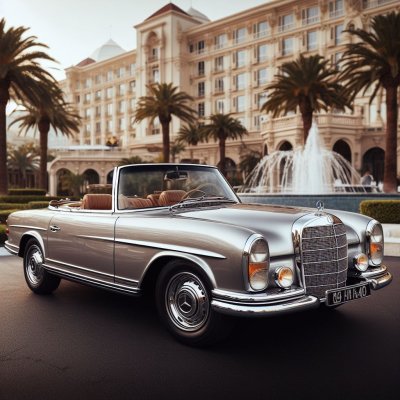The Birth of an Idea
Mercedes-Benz, synonymous with luxury and innovation, had a modest beginning. The story unfolds in the late 19th century, with a visionary engineer named Karl Benz. Despite facing skepticism and numerous setbacks, Benz was determined to create the world's first horseless carriage.
Triumph over Adversity
Amid doubts, hates, and failures, Karl Benz persevered. In 1886, he unveiled the Motorwagen, the first true automobile powered by an internal combustion engine. This groundbreaking invention laid the foundation for Benz & Cie., the precursor to Mercedes-Benz.
Rise to Prominence
Mercedes-Benz quickly ascended to prominence, becoming a leader in automotive production during the 1890s and early 1900s. The brand's commitment to innovation and luxury solidified its place in the burgeoning car industry.
A Dark Chapter
However, the company's history took a dark turn during World War II. Mercedes-Benz, under the Daimler-Benz umbrella, profited from supplying military vehicles to the Nazis. The production involved the use of forced labor, staining the company's legacy with controversy.
The Post-War Era
After the war, Mercedes-Benz faced the challenges of rebuilding and redefining its identity. The post-war era saw the brand navigate a complex path, addressing its wartime associations and striving to regain trust.
Legacy and Impact
Today, Mercedes-Benz stands as a symbol of automotive excellence. Its journey from the workshop of a determined engineer to a global luxury brand reflects the resilience, innovation, and adaptability that define the marque.
The story of Mercedes-Benz is a tale of triumphs and tribulations, innovation and controversy. As we marvel at the sleek designs and cutting-edge technology of modern Mercedes-Benz vehicles, it's essential to understand the complex history that shaped this automotive icon.












